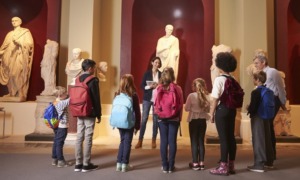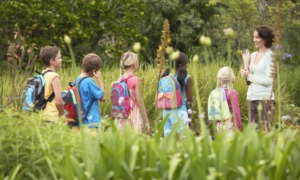
Syda Productions/Shutterstock
.
If you work with youth, you probably know about the significance of relationships in the lives of young people.
Specifically, research shows that the most important factor leading to positive outcomes for a young person is a relationship with a caring adult. This information holds enormous potential for helping youth thrive.
Outside the youth development field, however, people are not as aware of the possibilities for providing young people with beneficial relationships.
Now the Search Institute has pointed out specific gaps in public perception. Based in Minneapolis, the Search Institute is a nonprofit that conducts and applies research to promote positive youth development.
First of all, people often think that an adult’s ability to form good relationships with young people is born, not made, said Kent Pekel, Search Institute president and executive director. The thinking is that there are certain people — teachers, mentors, coaches — who are “relationship gurus” and that what they do can’t be replicated, he said.
In fact, relationship capabilities are not fixed but can be built, he said. The Search Institute offers training in how to create relationships with youth that express care, challenge growth, provide support, share power and expand possibilities. Those are the five ingredients in relationships that promote a young person’s positive development, according to the organization.
A recent report created for the Search Institute looked at additional gaps in understanding about developmental relationships.
The public tends to focus on family relationships when thinking about the needs of young people, but it’s not just family relationships that matter, the report said.
People tend to think that if a young person has a difficult relationship in the home there’s not much good other relationships can do, Pekel said. But a “teacher or coach or mentor can make a transformative difference,” he said.
And it’s not all about affection.
“In the public’s mind, relationships are about caring,” Pekel said. “Caring is necessary but not sufficient.” To be developmental, there must be challenge to the young person, he said.
In addition, relationships are seen as one-on-one, individual things, he said.
“But organizations can create an environment in which relationships are encouraged and supported,” Pekel said. “A school can create a structure or environment that can build relationships.”
Sometimes people think that children and youth are irreversibly damaged by trauma or other hardship, according to the report.
But “the public is not connected to tangible examples of how relationships heal trauma,” Pekel said.
Among all the factors that change outcomes for a young person, the quality of the youth-adult relationship is the most powerful in a kid’s success, he said.
However, one in five youth don’t have a developmental relationship with an adult, he said.
“We’re underinvesting in those relationships,” Pekel said.






























